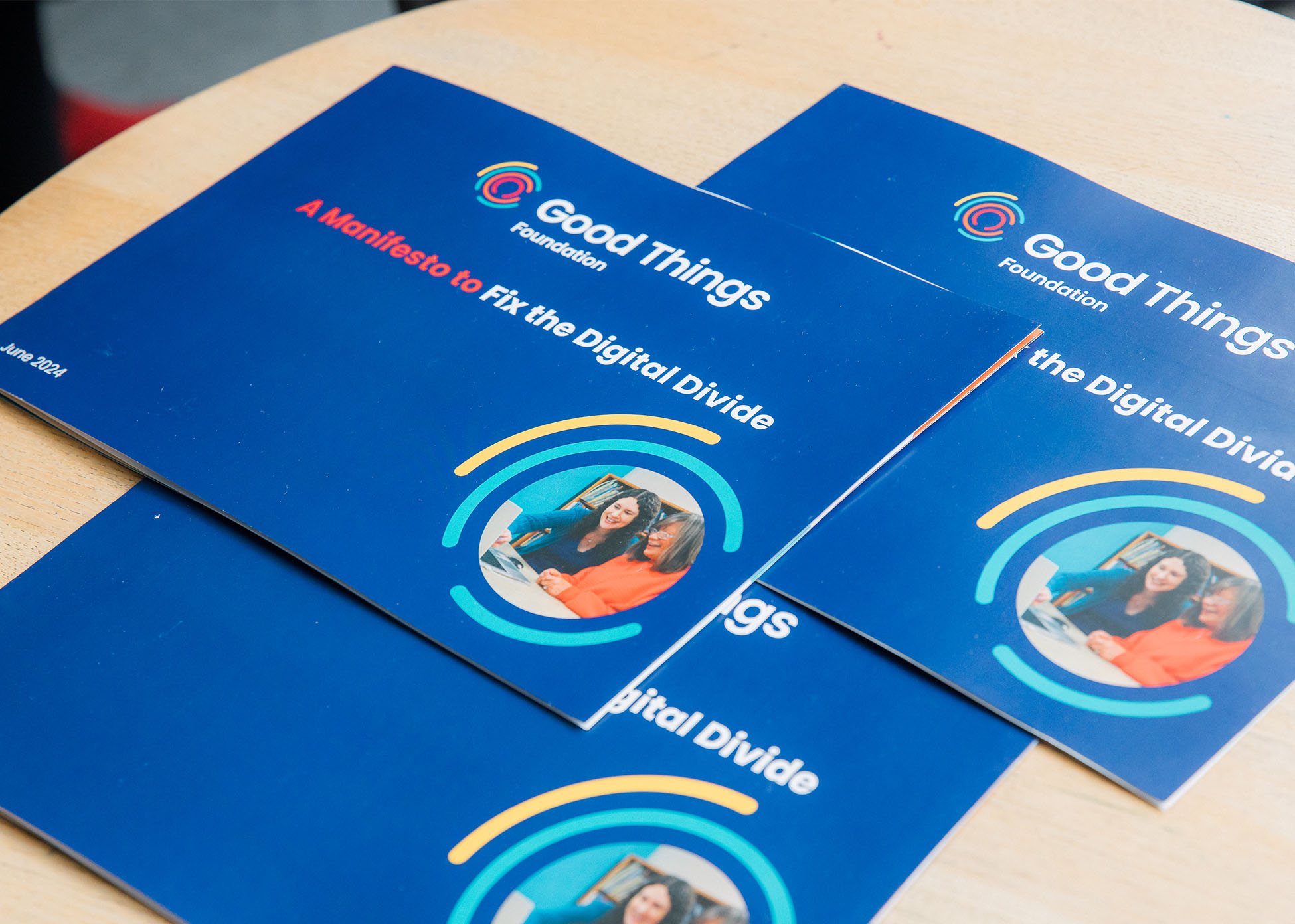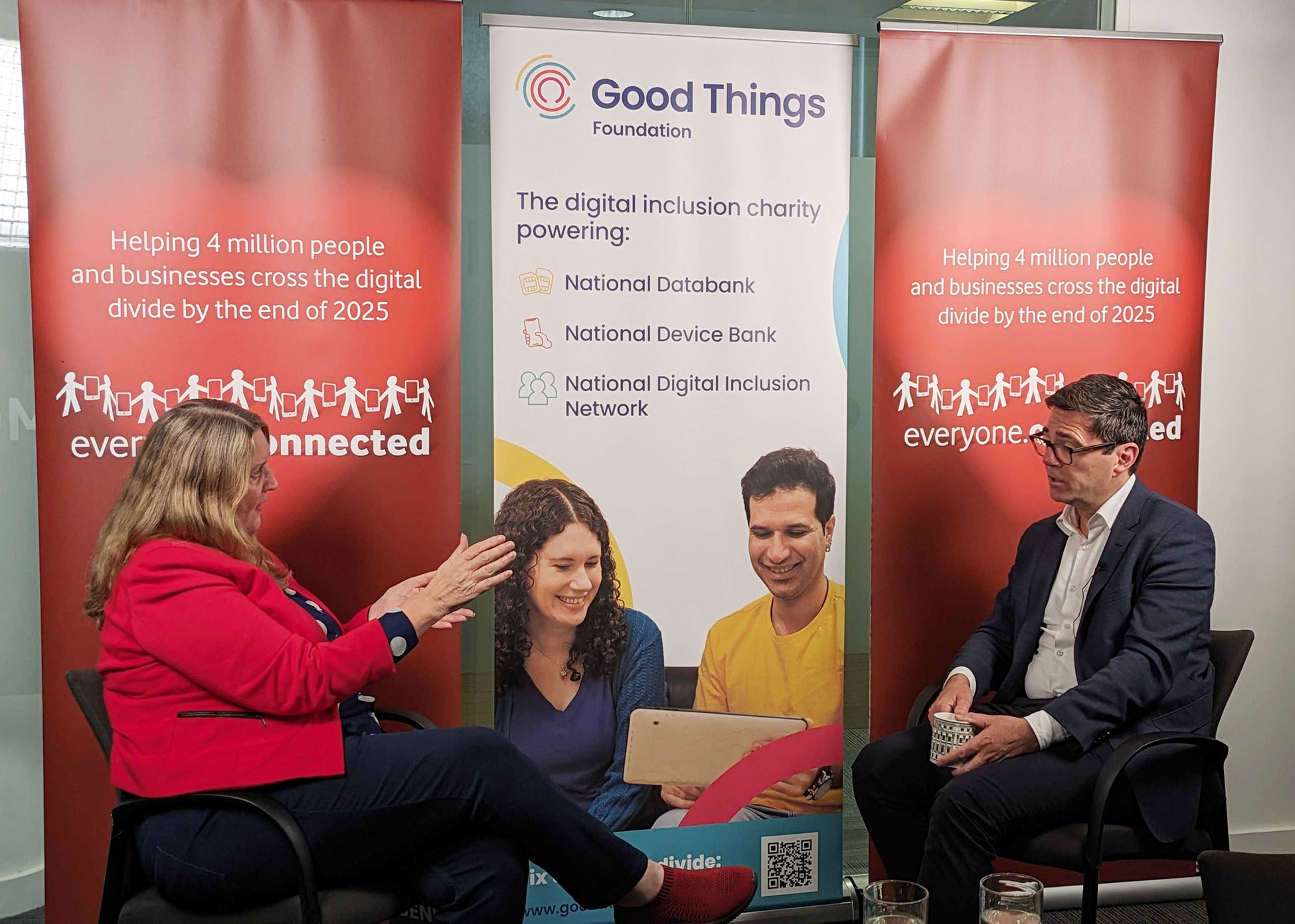The ABC of digital inclusion
As the UK’s leading digital inclusion charity, we know that a successful Government action plan on digital inclusion in the AI age must cover the ABC of digital inclusion.
Access: Free or affordable internet connectivity, data, and devices for all.
Basic digital skills: The opportunity to learn and acquire essential digital skills at any stage of life.
Community support: Helping people experiencing digital exclusion to get online locally.
Fixing the digital divide: the £13.7 billion economic opportunity
Digital exclusion is not just a social issue—it’s an economic one. When we ensure digital inclusion for all, we can unlock £13.7 billion in economic growth for the UK. It's time to boost economic growth and fix the digital divide.

Our five policy asks that will tackle digital exclusion
To tackle digital exclusion and boost digital inclusion, we’re asking the UK Government to take these five critical actions:
1. Lead a cross-sector digital inclusion action plan by December
2. Remove barriers to digital skills to help more people into employment
3. Repurpose old government devices for individuals and families in need
4. Co-invest in the National Digital Inclusion Network to support digital access through community services
5. Co-create a solution for the 1 million+ households experiencing deep data poverty*
Embedding digital inclusion across all levels of Government
We’re urging the UK Government adhere to our short-term actions and embed digital inclusion policies at all levels and in every corner of the UK. Together, we can fix the digital divide and ensure digital opportunities for all.
What could our nation look like without digital exclusion?
Digital Futures for Good is our in-depth conversation series that imagines a nation without digital exclusion. Each episode focuses on the transformational potential of innovative initiatives and policymaking. So far, we've been joined by leaders in digital and social inclusion:
- Baroness Dido Harding and Baroness Anna Healy from the House of Lords Communications and Digital Committee
- Dotcom entrepreneur and former Digital Champion Baroness Martha Lane Fox
- Food bank charity Trussell Trust’s Chief Executive, Emma Revie
- Greater Manchester Mayor, Andy Burnham
- NHS England Director of Primary Care Transformation, Minal Bakhai, and NHS England Director of Digital Development, Dr Sam Shah
- AI authority & thought leader, Nina Schick

Help us fix the digital divide
Speak to us about our policy asks, advocacy work or to explore how we can work together to #FixTheDigitalDivide – for good.